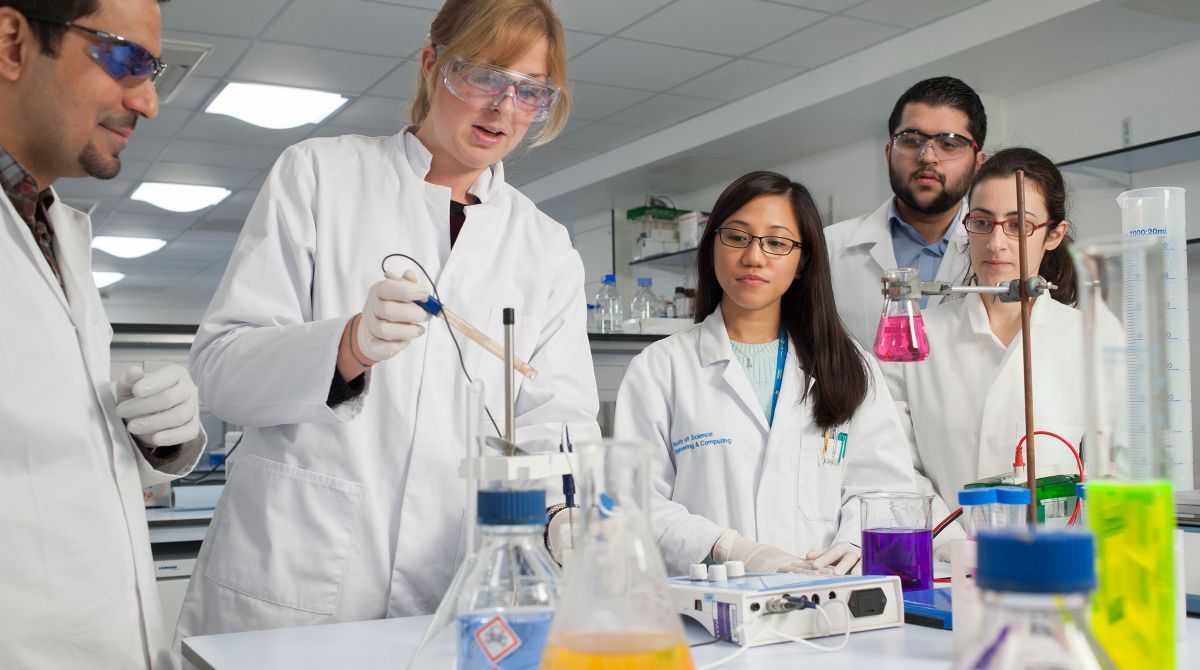
The basic sciences course is integral to the MD program of most medical school curriculums. It offers a strong foundational knowledge for studying and practicing advanced medicine. Basic sciences course involves the study of the basic function and structure of the human body while imparting knowledge about various aspects of human anatomy and diseases affecting parts of it. A basic science course in medical school lays a strong theoretical base that facilitates building advanced medical knowledge in the later years of the MD program.
The basic sciences course is often the cornerstone of medical education as the clinical medicine program is built upon it. Throughout the course, the focus remains on covering fundamentals of all the subjects and topics required to succeed in medicine. The first five semesters of the Doctor of Medicine program comprise the basic science program. It is also a great way to prepare for the USMLE step one exam. USMLE stands for the United States Medical Licensing Examination, a three-step format exam that can earn medical students the license to practice as medical professionals in the United States.
The basic science curriculum covers a diverse range of topics that offer a robust introduction to medicine while developing necessary clinical skills. As a prospective medical student, you must familiarize yourself with the subjects you will study in a basic science course.
Here are the basic science subjects covered during the five-semester coursework:
First Semester
- Human Body Structure and Function
- Human Histology and Physiology
- Clinical Skills I
Second Semester
- Genetics and Development
- Infection/Defence/Response
- Medical Ethics
- Evidence-based Medicine- Research Curriculum
- Metabolism and Nutrition
- Clinical Skill II
Third Semester
- System and Disease I
- Neuroscience and Neurology
- Behavioral Medicine
- Clinical Skills III
Fourth Semester
- System and Disease II
- System and Disease III
- Clinical Skills IV
Fifth Semester
- Clinical Skills V
- System and Disease V
- Introduction to Clinical Medicine
- Research Curriculum
These are the topics that are elaborately covered during the five-semester coursework. It underpins students’ understanding of the human body, diseases, and associated therapies. Moreover, the “Introduction to Clinical Medicine” module in the last semester of the basic science offers comprehensive preparations and a full-length, simulated examination experience
The basic science curriculum primarily consists of lab-based teaching, research, and lectures on the school campus. Most importantly, during the basic science course, students can get hands-on clinical training as the students will have the opportunity to visit the hospital or clinic as and when required. Getting the opportunity of visiting the hospital in the initial years of a medical program can undoubtedly bring a big difference to your medical career.
Once the students master the basic science subjects, they become eligible to take the USMLE step one examination, which is the most demanding licensing examination in the medical profession.
A career in medicine can shape an individual entire professional life as it offers them the opportunity to touch human lives in a truly unique manner. To build a career in medicine, an MD program that carefully integrates the study of basic science and clinical medicine is one of the highly preferred paths. So prioritize the MD program, which emphasizes basic science education, allowing future doctors to hone the skills central to a successful medical career.
Read ibomma for more interested information
Related posts:


Forex & Crypto
5 Best Ways to Earn Crypto While You Sleep in 2025
Categories
- Apps (1)
- Automotive (23)
- Beauty (7)
- Business (122)
- Celebrities (2)
- Digital Marketing (21)
- Ecommerce (2)
- Education (22)
- Entertainment (39)
- Events (6)
- Fashion (1)
- Features (4)
- Finance (1)
- Fitness (10)
- Food (2)
- Forex & Crypto (23)
- General (116)
- Health (48)
- House (61)
- Lifestyle (57)
- Marketing (8)
- Parenting (3)
- Pets (10)
- Real Estate (8)
- Safety and Security (14)
- Social Media (31)
- Sports (142)
- Technology (73)
- Travel (23)





















